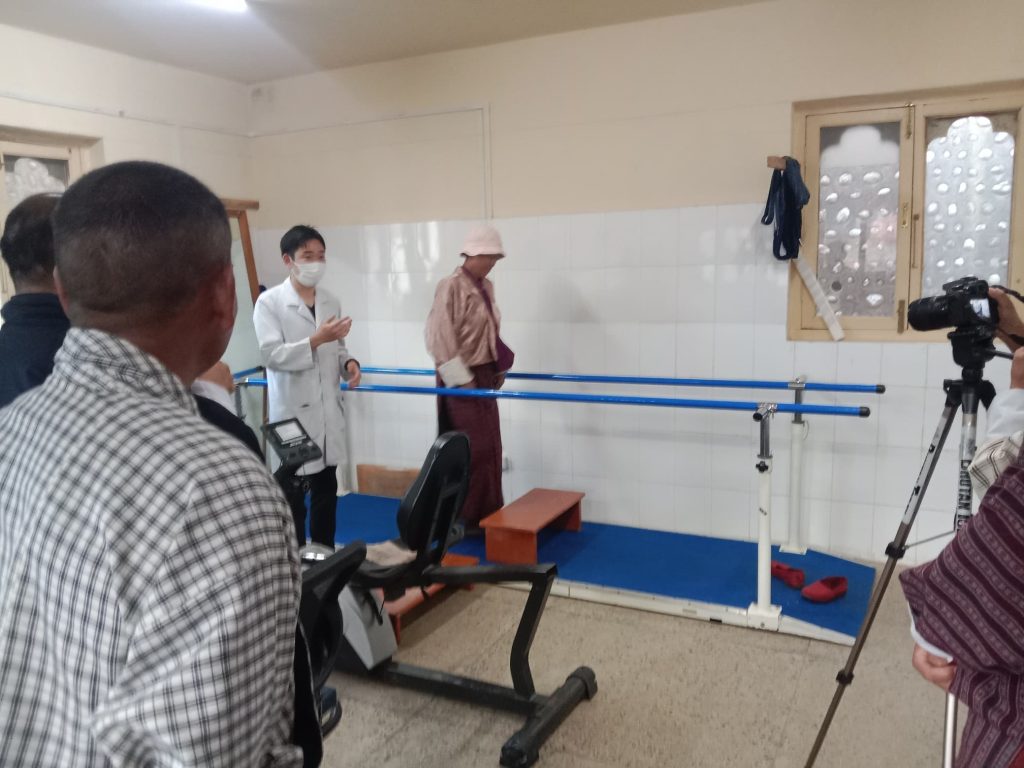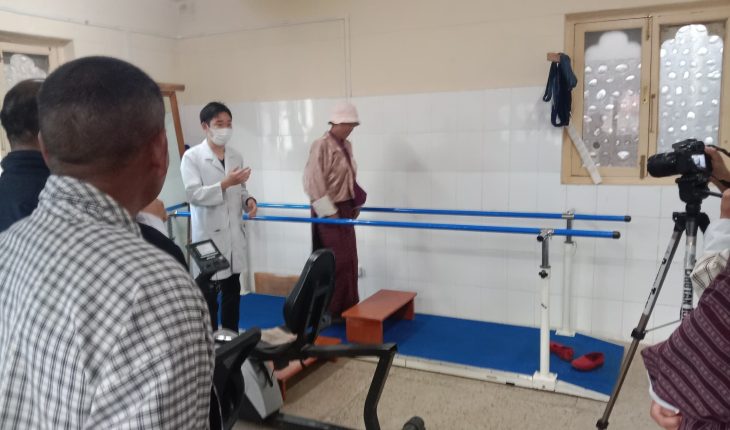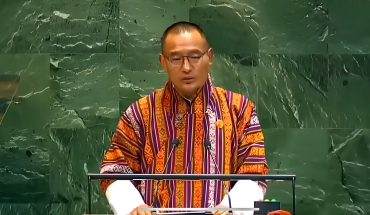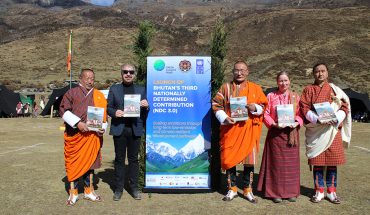
DAWA ZANGMO | Paro
hysiotherapy services in Paro have received a significant boost through collaboration between the Ministry of Health ( MoH) and the Japan International Cooperation Agency (JICA). The partnership, established under the JICA Volunteer Program, aims to strengthen rehabilitation services and enhance local capacity at Paro District Hospital through technical expertise and on the job training.
The physiotherapy unit at Paro Hospital provides essential services to patients recovering from injuries, chronic illnesses and etc. Treatments include rehabilitation, neurological therapy, post-surgical recovery, and exercise programs for the elderly. The department also assists patients with mobility challenges and educates them on posture, exercise, and preventive care.
Among the JICA volunteers, Ryohei Hachiya, a physiotherapist from Japan, has been serving at Paro Hospital for one year and eight months. His work focuses on improving physiotherapy services and supporting local staff in clinical and community-based rehabilitation.
Hachiya’s motivation to volunteer in Bhutan stems from his early experience in Japan when he faced difficulties treating a foreign patient due to cultural and lifestyle differences. This experience inspired him to work abroad and deepen his understanding of diverse cultural contexts. After working at an international hospital in Japan, he decided to join JICA to gain international experience and contribute to Bhutan’s health system.
As part of his main responsibilities, Hachiya provides physiotherapy services alongside local staff, sharing his clinical knowledge and practical skills to enhance rehabilitation quality. He also conducts home visits as part of Community-Based Rehabilitation (CBR) initiatives, which aim to reach patients who are unable to travel long distances for treatment.
The physiotherapy department offers a range of services including exercise therapy such as passive joint movement and gait training and physical modalities like electrical stimulation, ultrasound, and hot pack therapy. These methods help improve patient recovery and mobility outcomes.
To build local capacity, he organizes study sessions and case reviews within the department to share experiences and discuss treatment outcomes. He also makes use of the Electronic Patient Information System (EPIS) to record patient data and discuss interventions with team members. This system has proven valuable in documenting progress and promoting continuity of care.
In addition to routine clinical work, Hachiya has introduced Mirror Therapy at the hospital. This simple, cost-effective technique is used for upper limb rehabilitation and can be practiced at home by patients. The therapy is especially beneficial in Paro, where the hospital currently lacks an occupational therapist. By teaching this method, he has provided patients with a sustainable way to continue their recovery independently.
Among the patients who have benefited from physiotherapy services is Tsheltrim Zangmo, a 46-year-old resident of Tshento Gewog in Paro. She began treatment after experiencing severe back pain that affected her ability to work.
“When I first came to the hospital, I could hardly bend or walk properly,” she said. “After a few weeks of regular physiotherapy sessions, the pain reduced and my movement improved. The exercises and care provided by the physiotherapists made a big difference.”
She added that the physiotherapy team, including the JICA volunteer, explained every step of her treatment clearly and guided her on home exercises. “I feel that the service has improved a lot compared to before. Patients are treated with more attention and care, and we are encouraged to continue exercises even after discharge,” she said.
The JICA Volunteer Program provides strong logistical and institutional support to ensure volunteers work in a stable and encouraging environment.
The collaboration between JICA and MoH is part of a broader initiative to improve healthcare services and train more skilled physiotherapists in the country. The Khesar Gyalpo University of Medical Sciences of Bhutan (KGUMSB) is also involved in developing training programs and promoting research in rehabilitation and public health. These efforts are expected to create a more sustainable physiotherapy network across the country.
Through knowledge sharing, skill transfer, and community engagement, the JICA collaboration in Paro has strengthened both institutional capacity and service quality. Local physiotherapists report improved confidence and technical competence, particularly in handling complex rehabilitation cases. The partnership has also helped raise awareness about the importance of physiotherapy in preventing disability and improving quality of life.
Physiotherapy in Paro continues to evolve as an integral part of the district’s healthcare delivery. The combined efforts of local professionals and international volunteers are contributing to better rehabilitation outcomes for patients across the region. The ongoing collaboration reflects the shared vision of Japan and Bhutan to promote human resource development and improve public health services through mutual cooperation.
Hachiya said he hopes the collaboration will continue to empower Bhutanese physiotherapists and strengthen the foundation for sustainable rehabilitation services in the country. “Physiotherapy is not just about treatment,” he said. “It is about helping people regain independence and confidence in their daily lives.”





